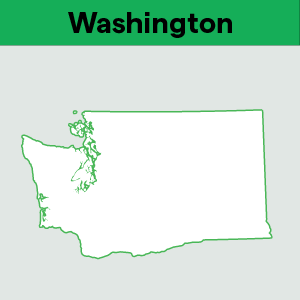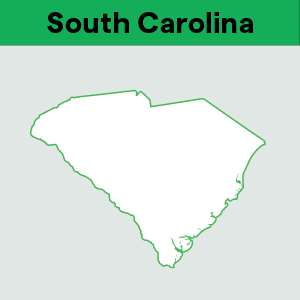Partnerships enhance retail brands in online marketplaces
by December 6, 2024
In today’s age of instant gratification — think free shipping, same- or next-day delivery, and one-click ordering — it’s not surprising to learn people turn to desktop and mobile devices to shop versus visiting a brick-and-mortar store. The retail landscape has evolved to marry the convenience and advantages of online shopping with the tangible and personal experience of a physical store. Kiosks now offer in-store coupons and price comparisons. High-end online brands can be found in stores, and Amazon sells their goods in physical locations. These are just a few examples that illustrate this new trend.
With the marriage of e-commerce convenience inside retail shops, retailers across numerous industries have taken the initiative to create innovative, new partnerships with Amazon and other online marketplaces.
Below, we outline a few of these partnerships to reveal how brands can potentially leverage familiar marketplaces’ massive audiences and logistical operations for their own gain.
Big Box Retail
In 2017, Kohl’s struck a deal with Amazon to allow Amazon customers to drop off their unboxed returns at participating stores in Chicago and Los Angeles for free return shipping. Through this pilot program, Kohl’s was able to boost their sales by driving new foot traffic to their stores.
In exchange, the big-box retailer set aside space where customers could learn more about the “Amazon Smart Home Experience,” and the Amazon Echo. As a result, Amazon simplified their returns process, which was historically a major customer pain point. Since then, this successful program has expanded into Milwaukee.
Additionally, Walmart acquired e-retailers Moosejaw, ModCloth, Jet.com, and Bonobos. With the Moosejaw collaboration, Walmart aimed to attract shoppers through a curated online shopping destination for the brand on Walmart’s site. The landing page includes thousands of items from premium outdoor brands, as well as Moosejaw-branded clothing.
Target and Target.com have rolled out an exclusive Korean beauty brand, Glow Studio, expanding their makeup offering while providing a Target-exclusive collection. Additionally, Target has also signed deals with other online brands, such as Casper mattresses and Bark subscription boxes of dog toys and treats. These examples reflect Target’s partnerships with digital brand experts to curate a selection of in-store and online products.
Big Box Electronics
In 2018, Best Buy and Amazon partnered to sell smart televisions programmed with Amazon’s Fire TV operating system. Through this deal, Best Buy agreed to no longer program Roku’s operating system in their in-house, Insignia, brand of products. In exchange, they received a preferred third-party status on Amazon for these products. As a result, both Toshiba and Insignia offer “Fire TV Edition” models, which are sold in Best Buy stores and on Amazon.
The world’s leading apparel brands
Adidas, Nike, and J-Crew are world-renowned apparel brands that have all partnered with Amazon. Through this partnership, each brand has access to a vast consumer base that consists of both Prime and non-Prime members. Although each brand does not sell its full range of products on the eCommerce platform, it can more carefully control its brand storytelling with Amazon Stores and EBC or A+ content.
Additionally, eBay partnered with Spring, a New York-based fashion e-retailer, to bring hundreds of big-name accessories and apparel brands such as David Yurman, Rag & Bone, Michael Kors, and Coach to eBay.com. This collaboration exemplifies the synergy between online companies and big brands coming together to grow their product offerings and appeal to consumers.
Automotive
In the summer of 2018, Hyundai partnered with Amazon to create a unique digital showroom. Through this showroom, customers can compare pricing and reviews, book a test drive, and find a dealer in their local area. In terms of brand strategy, Hyundai could own the top-of-the-funnel research, make the shopping experience more streamlined, while driving customer engagement for select brick-and-mortar locations.
Sears, the original “everything” store, struck an innovative automotive partnership with Amazon in 2018. Customers who purchase any brand of tires through Amazon will receive installation, wheel balancing, and other smaller services for one price at their nearest Sears store. Even though Sears has since filed for bankruptcy, this program proved to be enough of a success that it was eventually rolled out nationwide.
Insurance
This October, Travelers Insurance announced a partnership to create an innovative Amazon storefront promoting home insurance. The store provides home insurance and risk management information, smart home kits, discounts, and installation services. Through this storefront, customers can purchase Alexa-compatible smart home kits with security cameras, motion detectors, and other similar devices, which can also make them eligible for home insurance discounts. A free Amazon Echo Dot with Travelers Skills is included.
Energy
Arcadia Power helps people enroll in programs that promote clean energy and cost savings. This past October, they partnered with Amazon’s Home Services to have Arcadia’s two new subscription-based, home efficiency bundles and products installed. The bundles include smart home devices like smart LED bulbs, an Amazon Echo Dot, Wi-Fi enabled smart plugs, and the ecobee smart thermostat.
Financial services
Amazon and American Express unveiled a co-branded card for small businesses. American Express claims to be the top card issuer for small businesses and Amazon wants to increase its special Prime membership program for small businesses.
Cardholders with an Amazon Prime membership will have a few options with the card. They can choose between an interest-free loan for 90 days or 5% back on purchases through Amazon. Those purchase can be made on Amazon.com, Amazon Business, Amazon Web Services, and Whole Foods Market. The no-fee card will also reportedly offer 2% back on purchases at U.S. restaurants, gas stations, and mobile-phone services.
Media
Buzzfeed partnered with Amazon to found a new book club just in time for those cold winter months. At the start of each month, Buzzfeed announces a new book, which members can pre-order for a discount on Amazon. Buzzfeed will also receive a percentage of the sales Amazon generates when members use affiliate links.
Walmart has also partnered with Buzzfeed and the web series Tasty — which reaches 540 million people globally on Facebook, SnapChat, and YouTube — for a line of kitchenware. The new line has 90 products available on Walmart’s website.
Final thoughts
Brands can no longer ignore Amazon or other leading online marketplaces as an independent and wholly unique sales channels in their overall business strategies. It may come as a surprise that more than 55% of product searches start on Amazon, not Google. As a result, the eCommerce giant offers a vast consumer base, including more than 100 million Prime members worldwide, and incredible exposure for any brand that wants to capture new revenue or continue to solidify their brand presence in the digital world.
Ready to automate sales tax? Sign up for a free trial of TaxJar today.
This guest post is from our friends at Feedvisor.








